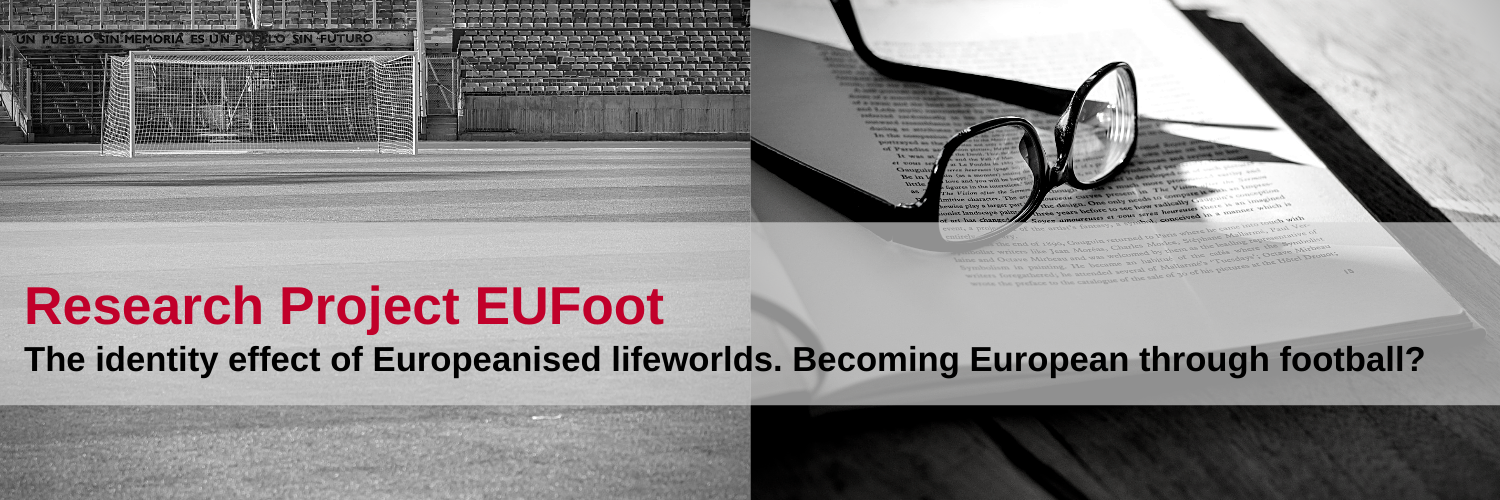Online Panel: Europeanisation of identities through everyday practices
On Sep 3, 2020, the EUFoot team in Kleve organised an online panel that brought together three papers focusing on questions of how Europe is formed in everyday life activities.
The panel sought to discuss the role of activities that are not strictly political, such as sport fandom and literature, but it also encompassed EU cultural initiatives. Its aim was to discuss different and new ways of identity formation with regards to Europe.
Three presentations
Russell Foster, King’s College London, presented a paper which demonstrated convincingly that the successful Brexit referendum in 2016 left its mark on British fiction as well. Within the literature appearing after Brexit, an older literature genre known as Imperial Gothic, recurs. Whereas pre-Brexit, representations of the EU were exclusively dystopian, the same is true for many representations of Britain after 2016. In an interesting twist, the EU now seems to be mourned for as a lost utopia. He sees the themes of late Victorian and early Edwardian imperial gothic been carried into neo-imperial gothic – or Imperial Gothic 2.0.
Katja Mäkinen, University of Jyväskylä, provided insights into her study of the effect that European Cultural Initiatives have on participants’ identifications vis-á-vis Europe. In the context of the EUROHERIT project, she studied participants of cultural exchange projects regarding their understanding of being European. Her “ethnography of Europeanisation” shows how participants of the cultural initiatives perceive Europe as characterised by diversity, free mobility, and mutual entwinement. At the same time, such feelings of belonging are only party connected to a self-understanding as European citizens.
Regina Weber, Rhine-Waal University, presented results of the ongoing EUFoot project. Her paper discussed a typology of football fans along the lines of national vs. cosmopolitan self-understandings of fans. Her presentation demonstrated how football fans differ regarding their involvement in the game and regarding the relevance their attribute to national belonging. Fans that are used to an international squad with many foreign players are more cosmopolitan than other fans. In that sense, football is a relevant lifeworld which allows for the study of how leisure time activities and exposure to transnationalism influences the attitudes of individuals.
People as carriers of Europeanisation
The panel was moderated by Alexander Brand, Rhine-Waal University. In his comment, he noted that even though all three papers had chosen “Europe” as their spatial frame of reference, the EU seemed to serve different purposes: being a smokescreen for the projection of anxiety or nostalgia in the so-called Brex-Lit, attaining agency in an effort to foster European identifications, and finally more of a background condition responsible for co-shaping the structures in which sport takes place. All papers, however, had a strong focus on people as carriers of Europeanisation: novelists and readers, students and (amateur) artists, or football fans.
The concluding lively discussion with about 15 participants showed that European identity studies can gain much from focussing seemingly unpolitical, life-world matters, especially given the ongoing rise of anti-European sentiments and relevant political forces across several European countries.
